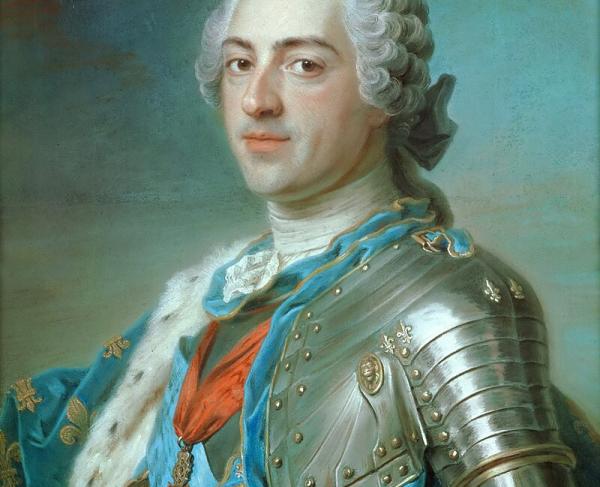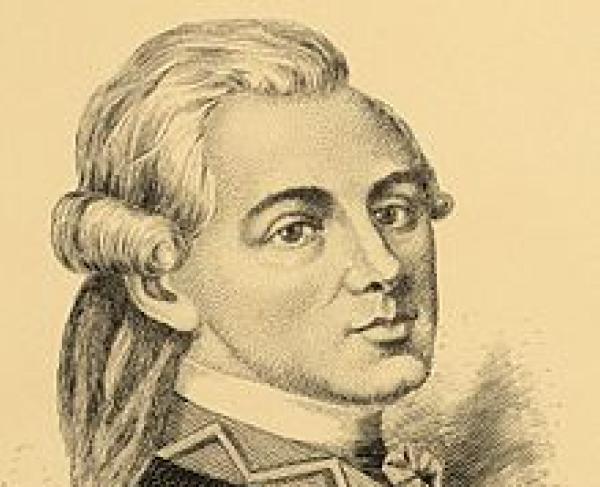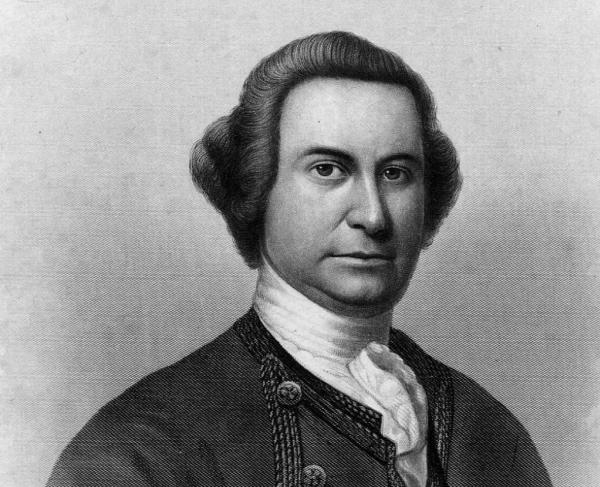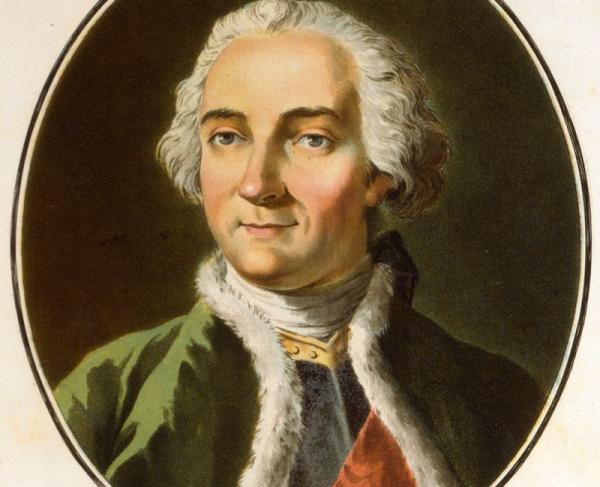King Louis XV

Louis XV was monarch of France from 1715 until his death in 1774. He ruled during the Seven Years War—also called the French and Indian War—which resulted in a loss of French colonial territory in North America.
Born on February 15, 1710, he became the first French king to be born and to die at the Palace of Versailles. The son of the Duke of Burgundy and Marie Adelaide of Savoy young Louis survived an outbreak of measles which killed his parents and many other family members, leaving him the royal heir. Louis XV became king in 1715, following the death of his great-grandfather, Louis XIV, who was often called “the Sun King.” Philippe of Orleans ruled as Regent for a time, since Louis XV was so young. He received an education influenced by the Enlightenment and had a deep interest in sciences and histories. In his childhood, Louis XV was popular with the French, who called him le Bien-Aimé (the Well-Beloved).
By age ten, Louis XV attended cabinet meetings and tried to take an active role in his country's governance. In 1722, he relocated the French Court back to the Palace of Versailles which had been empty since his great-grandfather’s death. Shortly after, Louis XV was formally crowned in Reims. He married Marie Leszczyńska, a Polish princess, in 1725, and the royal couple had ten children. Louis XV was the father of three French kings: Louis XVI, Louis XVIII and Charles X.
From 1726 to 1743, Cardinal de Fleury essentially ruled France with Louis XV’s permission. Then, in 1744, the king declared that he would rule without a chief minister but struggled to give direction to national policy or control the secretaries of state. Secretaries and government ministers schemed and built factions, weakening France at home and abroad. By 1749, the king was in conflict with the Parlement of Paris over the new, higher taxes that the monarch wanted to implement. In foreign affairs, Louis XV set up le Secret du roi, which was an undercover network of agents in European capitals. The difficulties arose when Louis XV’s secretaries did not know about his operatives and countered his secret foreign policy efforts. The perception of the king’s ineffectual policies reduced his popularity over the decades of his reign and the debts of France continued to rise.
One of the king’s mistresses, Madame de Pompadour, convinced him to pursue more open foreign policy and helped forge an alliance with Austria. This alliance led to the Seven Years War with France and Austria battling Great Britain and Prussia on the continent and in colonial holdings. This conflict was known as the French and Indian War in North America. The alliance kept Louis XV’s attention on the fighting in Europe and prevented him from committing more troops and resources to fighting the British in Canada and along the borders of the 13 Colonies. When the war ended with the Treaty of Paris in 1763, France was forced to give up large colonial territories in North America and India.
Louis XV isolated himself from government matters and public ceremonies whenever possible. He preferred private suppers and improving the gardens of Versailles. He also ordered the construction of the Petit Trianon, a separate palace for Madame de Pompadour. Louis XV enjoyed studying botany and expanded the gardens at Versailles. He also toyed with clocks and maps and occasionally experimented with electricity. He was known for his generosity to scientists, inventors and engineers of the Enlightenment Era.
From 1758 until 1770, the Duke de Choiseul served as minister of foreign affairs and later minister of war, a powerfully influential position. With de Choiseul’s recommendations, Louis XV expanded the French navy, modernized the French army, and secured new European territories, Lorraine and Corsica. Louis XV’s shipbuilding goals would bring the combined French and Spanish allied navies to a powerful force that could challenge Britain's Royal Navy. However, at home, trouble loomed as Parlements continued to oppose the royal taxes and the king banished the Jesuits from France because of church and royal conflict.
Toward the end of Louis XV’s reign, Parlements were forcibly disbanded, removing checks on the king’s power. France’s deficit continued to increase, leading to concerns about the future financial stability of the county. At Versailles, tensions and politics simmered between the king’s new mistress, Madame Du Barry, and Marie Antoinette—a newly-arrived Austrian princess who married the king’s grandson. The stage was being set for changes.
King Louis XV would not live to see those changes, though. He contracted smallpox and died on May 10, 1774. His grandson—Louis XVI—succeeded him and would rule France during the American Revolution and until he was overthrown and executed during the French Revolution. Louis XV had the second longest reign in France’s monarchy, and his rule was marked by rising military power, colonial loss and rising turmoil within the country.


